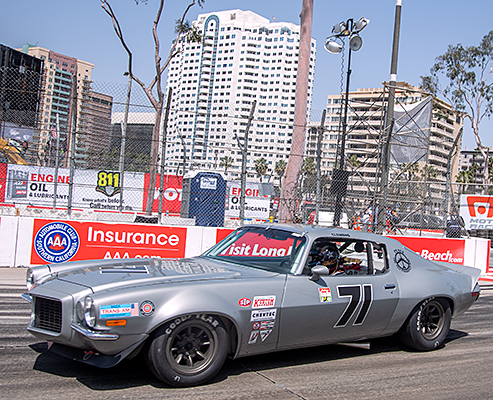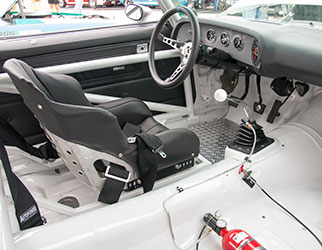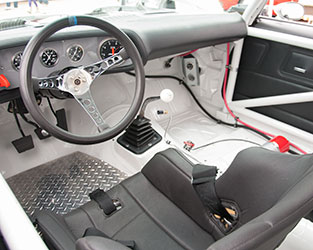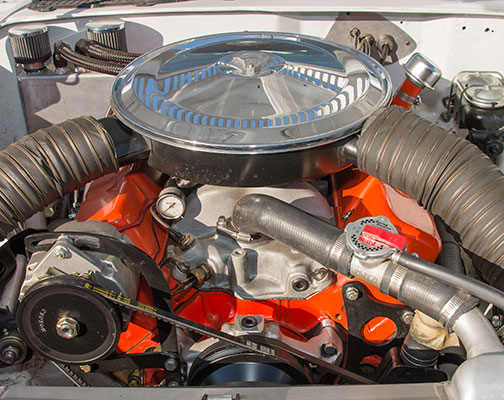
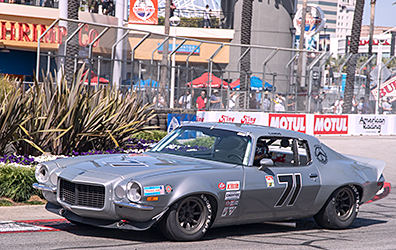
Chip Fudge
1970 Chevrolet Camaro #71
Originally driven by Robert Clemens
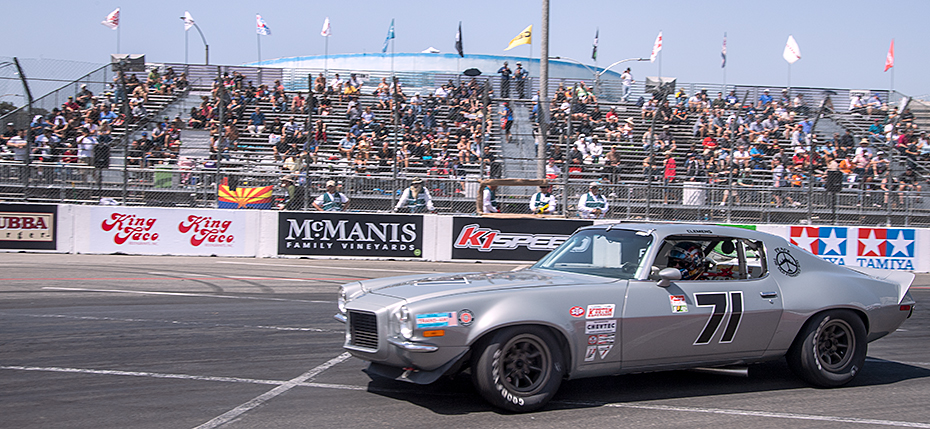
Documented History:
Mr. Robert Clemens, a Chassis and Suspension Engineer in GM’s Corvette Division (from 1955 - 1985), purchased this car in 1970, as part of GM’s Employee Purchase Program. This car started life as a 1970 Camaro Rally Sport street car, painted Cortez Silver with a V8 engine. Robert and his wife Carol used it as a family car for nearly a year. Clemens had been an active SCCA racer all throughout his life, and with about 5,000 miles on the “family car,” Robert and Carol decided to turn it into an SCCA Trans Am race car.
With Carol’s full support, Robert Clemens and David Skibowski started the long process of converting the Camaro into a full-fledged Trans Am racer. Robert and David worked nights and weekends for nearly a year to convert the car. They installed the roll cage, added steel fender flares, added a fuel cell, re-built the motor, installed all of the appropriate safety equipment, etc. After months of preparation the car was readied for its first event – the 1972 Trans Am Race at Watkins Glen, NY.
Prior to leaving from their home in Utica, Michigan, Robert was doing some last minute tuning on the car in front of their home. The noise coming from the 4” dump exhaust attracted the attention of the local authorities who demanded that Mr. Clemens “have that car out of here in ten minutes!” with the additional admonition, “Don’t make us ever come out here again!” Mr. Clemens loaded up the car, and with Dave Skibowski as his crew chief, they headed out to New York to start their Trans Am careers.
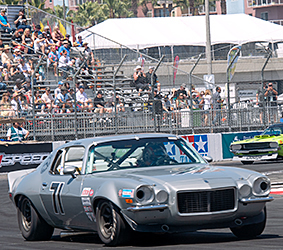
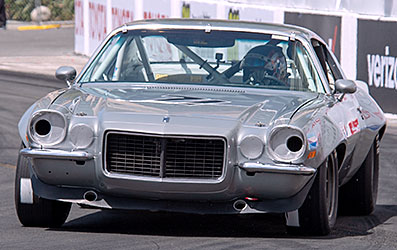
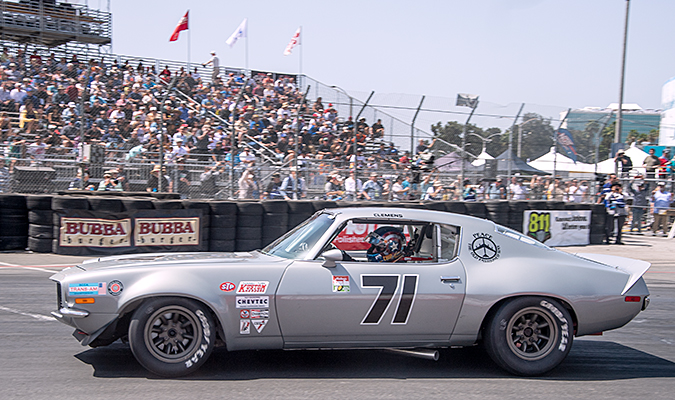
Despite the fact that this car is not a factory prepared Camaro race-car, it does bear similarities to these cars in several areas – probably attributed to Mr. Clemens “insider’s knowledge” of how those factory cars were assembled. It has the factory steel flares which could only be sourced from GM at the time. Second, the roll bar configuration looks like it may have been copied from the configuration used in the factory cars. Additionally, it is clear that Mr. Clemens leveraged his experience as a Corvette Suspension engineer to add some personal touches to achieve that “unfair advantage” that had served him well in other classes of racing. He removed the shims between the body and the chassis in order to lower the car, he added “Corvette brakes – front and rear including calipers and adapters” and the “latest fit knuckles and spindles.”
Car #71 was entered in two Trans Am Races in 1972, Watkins Glen on June 16th, 1972 and Road America on July 14th, 1972. At Watkins Glen the car started 31st and finished 20th, earning $150 in prize money. At Road America the car started 24th and finished 28th, earning $50.




Clemens sold the car at the end of 1972, to Roy Stamey, who entered the car in a single event, the 1973 Trans Am Race at Road Atlanta on April 14th, 1973. Later in that year, Roy Stamey sold the car to Gene Rutherford.
Documentation accompanying this car from the 1972 Trans Am season includes the original SCCA Log Book that has been with this car from its first race. The log book number is 10-204, and the VIN number in the log book (VIN# 12487ON533646) [2] matches the VIN number in the car, both near the windshield and on the firewall.
Records accompanying the car document many of the key mechanical components that were on the car in 1972. Every effort was made to retain the original configuration of this car during its restoration.
At the conclusion of the 1972 racing season, Clemens sold the car to Roy Stamey of Canton, North Carolina, who ran the car in a single race - the Trans Am race at Road Atlanta on April 13th, 1973. Stamey later sold the car to Gene Rutherford of Roswell, Georgia. In 2006, Jeffrey Stout of Manhattan Beach, California purchased the car (then black with silver stripes and a sliver hood) from Mr. Rutherford who had owned it for 32 years. Jeff immediately commissioned Gary Jones Motorsports of Hephzibah, Georgia to complete a comprehensive restoration on #71, returning to 1972 “as raced”
